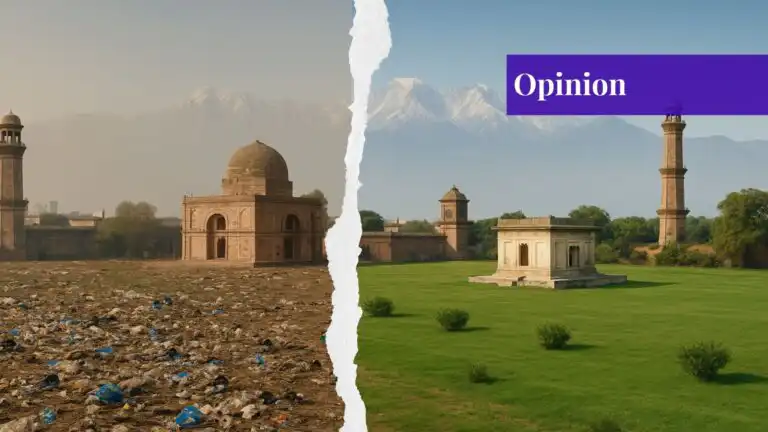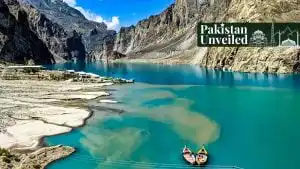Ghazala Anbreen's work spans energy, journalism, and advocacy; making her a multifaced contributor to important discussions.
“Cleanliness is half of faith.”
Sahih Muslim
Our beloved Holy Prophet (PBUH) said this, but are we truly observing its meaning? There is a lack of civic sense on the part of the community.
Countries with Strict Anti-littering Policies
Let us look at some of the countries where cleanliness is maintained rigorously. Singapore is famous for its immaculate public spaces and enforces strict anti-littering laws with fines of $220. In Japan, littering is taken as a serious offense. The people who violate laws may face fines and public shaming. In Switzerland, littering is regulated, and fines can be imposed for violations. Denmark, Ireland, Italy, Malta, and Scotland all have specific national litter legislation.
Likewise, there are countries such as Germany, France, the Netherlands, Norway, Poland, Romania, Slovakia, Spain, and Sweden where littering is regulated by legislation and is subject to fines for violations. All these countries place a special focus on maintaining cleanliness and instill civic responsibility in their citizens for a good, healthy environment for everyone.
The Contamination of Rawal Lake
On 6 January 2025, the Senate Subcommittee on Climate Change and Environmental Coordination highlighted the need for improved waste management, noting concerns about untreated sewage reaching Rawal Dam. It is noteworthy that this dam is considered one of the main sources of drinking water for the people living in Islamabad and Rawalpindi. It is worth noting that concerns about water pollution in Rawal Lake have been raised for years. A 2010 news report mentioned the discharge of untreated sewage, highlighting the ongoing need for sustainable solutions.
In Rawal Lake in Bani Gala, Islamabad, people’s negligence in keeping such places clean has led to poor hygiene conditions. This place could be transformed into a beautiful and delightful spot for families to visit on weekends for picnics with their kids. Scavengers hover over the dirt, further adding to the distressing sight. A little effort and a sense of ownership among citizens could preserve its natural beauty. It is imperative for all of us to restore the beauty of this lake; otherwise, our indifference toward nature will undoubtedly result in dire consequences. This is our city and our country, and we must take care of it ourselves.
Steps Toward a Green Islamabad
It is an ethical duty for people to take care of their surroundings and keep them clean. It is important for authorities to foster responsible behavior among citizens and implement measures that maintain a clean environment. The Pakistani community must be encouraged to maintain personal hygiene (both physical and mental) and keep public spaces clean, ensuring the observance of Islamic values just as they keep their homes clean. This will ensure a healthy and harmonious environment for everybody. Everyone must reflect on their responsibilities as stewards of the environment. In this way, the city will reflect Islamic values of respect and responsibility toward one another and the environment.
Instilling awareness about a clean environment is essential. We should all come together for this cause. It is very important to teach our kids the value and significance of safeguarding the environment. They should be taught to appreciate and contribute to our beautiful environment. The students must be sensitized to the importance of green spaces in urban areas. This is vital for fighting global warming and addressing the threats of climate change, as it will contribute to better air quality.
They should be informed that green areas help reduce heat, improve health and well-being, and benefit both flora and fauna. Initiatives such as tree plantation drives and effective waste-management practices that lead to a clean and green Islamabad should also be promoted in schools and colleges. The focus should also be on teaching them how to use advanced technology to achieve these objectives and guarantee sustainable development.
GIS (Geographic Information System) can be helpful for monitoring and recording green areas, as well as identifying opportunities for afforestation and innovative landscaping to increase urban greenery. These tools can assist in identifying and categorizing land for tree planting in remote areas, and impact evaluations can be conducted to measure the effective growth of trees.
Local schools and NGOs can collaborate to raise awareness about the environment. Symposiums on waste management and sustainable living can be organized to educate the community. The city administration, in collaboration with citizens, can further strengthen efforts to expand green belts along main roads and adopt environmentally friendly initiatives for a cleaner and greener urban space. Other practical steps include installing solar panels in public spaces and parks to provide lighting and other services. With proper planning and strict enforcement, these challenges can be overcome.
If you want to submit your articles and/or research papers, please visit the Submissions page.
To stay updated with the latest jobs, CSS news, internships, scholarships, and current affairs articles, join our Community Forum!
The views and opinions expressed in this article/paper are the author’s own and do not necessarily reflect the editorial position of Paradigm Shift.





